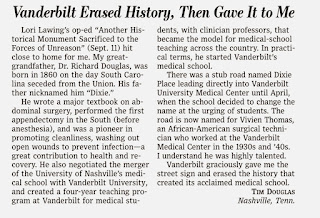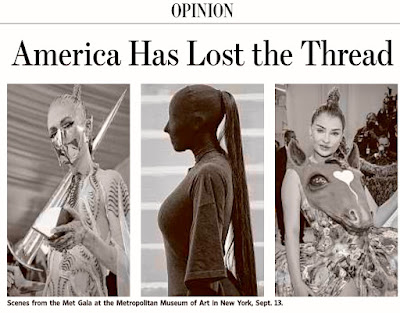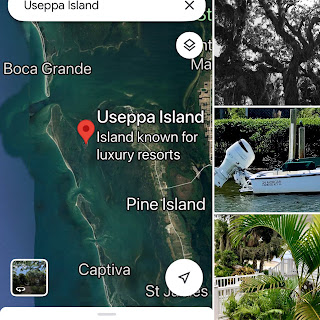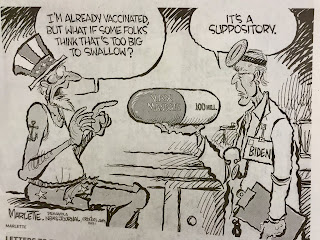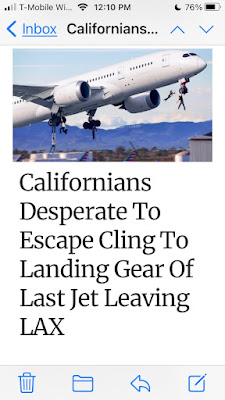 Mainline Florida: Link to Mainline Florida.
Mainline Florida: Link to Mainline Florida.
 |
| Photo poolside next to Desert Rose |
Probably my last painting of the preserve behind the house for a while, this is number 10.
 |
| 14 x 11” oil on canvas board |
The best of Rodney Dangerfield
Always a good laugh ..
With my old man I got no respect. I asked him, "How can I get my kite in the air?" He told me to run off a cliff.
I went to a massage parlor. It was self-service.
It's tough to stay married. My wife kisses the dog on the lips, yet she won't drink from my glass!
Last night my wife met me at the front door. She was wearing a sexy negligee. The only trouble was, she was coming home.
A girl phoned me and said, “Come on over. There's nobody home.” I went over. Nobody was home!
A hooker once told me she had a headache.
I was making love to this girl and she started crying. I said, “Are you going to hate yourself in the morning?” She said, “No, I hate myself right now.”
My wife is such a bad cook, if we leave dental floss in the kitchen the roaches hang themselves.
I'm so ugly I stuck my head out the window and got arrested for mooning.
My wife's such a bad cook, the dog begs for Alka-Seltzer.
I know I'm not sexy. When I put my underwear on I can hear the Fruit-of-the-Loom guys giggling.
My wife is such a bad cook. In my house we pray after the meal.
My wife likes to talk to me during sex; last night she called me from a hotel.
My family was so poor that if I hadn't been born a boy, I wouldn't have had
anything to play with.
It's been a rough day. I got up this morning and put a shirt on and a button fell off. I picked up my briefcase, and the handle came off. I'm afraid to go to the bathroom.
I was such an ugly kid! When I played in the sandbox, the cat kept covering me up.
I could tell my parents hated me. My bath toys were a toaster and radio.
I was such an ugly baby that my mother never breast fed me. She told me that she only liked me as a friend.
I'm so ugly my father carried around a picture of the kid that came with his wallet.
When I was born, the doctor came into the waiting room and said to my father, "I'm sorry. We did every thing we could, but he pulled through anyway."
I'm so ugly my mother had morning sickness AFTER I was born.
I remember the time that I was kidnapped and they sent one of my fingers to my father. He said he wanted more proof.
Once when I was lost, I saw a policeman, & asked him to help me find my parents. I said to him, "Do you think we'll ever find them?" He said, "I don't know kid. There's so many places they can hide."
My wife made me join a bridge club. I jump off next Tuesday.
I'm so ugly, I once worked in a pet shop, and people kept asking how big I'd get?
I went to see my doctor. "Doctor, every morning when I get up and I look in the mirror I feel like throwing up. What's wrong with me?" He said: "Nothing, your eyesight is perfect."
I went to the doctor because I'd swallowed a bottle of sleeping pills. My doctor told me to have a few drinks and get some rest.
One year they wanted to make me a poster boy -- for birth control.
My uncle's dying wish was to have me sitting in his lap; he was in the electric chair.
And that’s why we miss Rodney Dangerfield!
SOUTH BEND, Ind. — Catholic nuns and his grandparents’ example helped instill in Supreme Court Justice Clarence Thomas the belief that all people were children of God and that the racist flaws of American society were a betrayal of its best promises, he said in a lecture Thursday.
“My nuns and my grandparents lived out their sacred vocation in a time of stark racial animus, and did so with pride with dignity and with honor. May we find it within ourselves to emulate them,” Justice Thomas said at the University of Notre Dame Sept. 16.
“To this day I revere, admire and love my nuns. They were devout, courageous and principled women.”
Thomas, only the second Black Supreme Court justice, delivered the Tocqueville Lecture at the invitation of the Center for Citizenship and Constitutional Government, a new Notre Dame initiative that focuses on discussions and scholarship related to Catholicism and the common good.
“In my generation, one of the central aspects of our lives was religion and religious education,” he said. “The single biggest event in my early life was going to live with my grandparents in 1955.”
His grandfather was a “very devout” Catholic convert, while his grandmother was a Baptist. Thomas, then a second grader, was sent with his brother to St. Benedict the Moor Grammar School in Savannah, Georgia. He was not Catholic at the time, but would convert at a young age.
“Between my grandparents and my nuns, I was taught pedagogically and experientially to navigate through and survive the negativity of a segregated world without negating the good that there was or, as my grandfather frequently said, without ‘throwing the baby out with the bath water,’” the Supreme Court justice said.
“There was of course quotidian and pervasive segregation and race-based laws which were repulsive and at odds with the principles of our country,” he said, but there was also “a deep and abiding love for our country and a firm desire to have the rights and responsibilities of full citizenship regardless how society treated us.”
Said Thomas: “There was never any doubt that we were equally entitled to claim the promise of America as our birthright, and equally duty-bound to honor and defend her to the best of our ability. We held these ideals first and foremost because we were raised to know that, as children of God, we were inherently equal and equally responsible for our actions.”
Thomas spoke of his second grade teacher Sister Mary Dolorosa’s catechism lessons, during which she would ask the class why God had created them.
“In unison our class of about 40 kids would answer loudly, reciting the Baltimore Catechism: ‘God created me to know love and serve him in this life and to be happy with him in the next."
“Through many years of school and extensive reading since then, I have yet to hear a better explanation of why we are here. It was the motivating truth of my childhood and remains a central truth today," he said.
“Because I am a child of God there is no force on this earth that can make me any less than a man of equal dignity and equal worth,” he said. This truth was “repeatedly restated and echoed throughout the segregated world of my youth” and “reinforced our proper roles as equal citizens, not the perversely distorted and reduced role offered us by Jim Crow.”
Thomas questioned what he saw as a “reduced” image of Blacks today, deemed inferior by bigots or “considered a victim by the most educated elites.”
“Being dismissed as anything other than inherently equal is still, at bottom, a reduction of our human worth,” he said. “My nuns at Saint Benedict‘s taught me that that was a lie. In God’s eyes, we were inherently equal.”
His grandparents also believed in equality before God. Because of that, “not only did we deserve to be treated equally, but we also were required to conduct ourselves as children of God. Hence, we were to live our lives according to his word. My grandparents repeatedly stressed that because of our fallen nature we had to earn our bread by the sweat of our brows.”
Thomas continued: “There was no room to doubt this and even less for self-pity. As they saw things, on judgment day we would be held accountable for the use of our God-given talents and our opportunities.”
Thomas became a Catholic seminarian and studied for a year at Conception Abbey Seminary in Missouri, but left after the 1968 assassination of civil rights leader Rev. Martin Luther King, Jr. Elsewhere, Thomas has said he was repelled to witness fellow seminarians make disparaging comments about King. That experience led to years of distance from Catholicism, and he only returned to the Catholic faith after becoming a Supreme Court justice.
He said he regretted that he ignored or rejected the lessons of his youth, including “not to act badly because others had acted badly.” For a time he saw this morality “as a sign of weakness or cowardice.” After King’s assassination, he said, “I lost faith in the teachings of my childhood and succumbed to an array of angry ideologies.”
“Indeed, that was why I left the seminary in May of 1968. I let others and my emotions persuade me that my country and my God had abandoned me. I became disoriented and disenchanted with my faith and my country and deeply embittered, and perhaps worst of all, I let my family down,” he said.
At the age of 19, his grandfather asked him to leave his house. He then became a student at College of the Holy Cross in Massachusetts, where, he said, “I fell in quickly with radical ideologies such as Black Power. It was an era of disenchantment and deconstruction. The beliefs of my youth were subjected to the jaundiced eye of critical theories or, perhaps more accurately, cynical theories.”
His grandfather warned him that he had taken the wrong path, and Thomas later came to believe that “the theories of my young adulthood were destructive and self-defeating.”
“The wholesomeness of my childhood had been replaced with emptiness, cynicism and despair,” he said. “I was faced with a simple fact that there was no greater truth than what my nuns and my grandparents had taught me: We are all children of God and rightful heirs to our nation’s legacy of civic equality. We were duty-bound to live up to obligations of the full and equal citizenship to which we were entitled by birth.”
In April 1970 Thomas returned to his college campus from a riot early one morning. There, he said, “I stood outside the chapel at Holy Cross and asked God to take hate out of my heart.”
This was his background for his later encounters with the Declaration of Independence and the legacy of the founding of the United States. He praised the “self-evident” truths of the Declaration, which had been “beyond dispute” in the society, school and home of his youth, “As I rediscovered the God-given principles of the Declaration and our Founding, I eventually returned to the Church which had been teaching the same truths for millennia,” he said, reflecting on American history and its fierce debates about slavery and racial equality.
While radical abolitionists like William Lloyd Garrison depicted America as “a racist and irredeemable nation,” Thomas sided with those who “were unwilling to give up on the American project.”
“Equal citizenship was a black man‘s birthright and to give up on America was to concede that America’s Blacks never were equal citizens as the Declaration of Independence had promised them,” he said. “To demoralize freedmen and slaves in that way, as Frederick Douglass argued, served only to increase the hopelessness of their bondage.”
Douglass, a former slave who became a famous American orator, aimed to convince Americans “that the country was unmoored but not lost.” Both Abraham Lincoln and Martin Luther King similarly emphasized the promise of equality in America’s founding documents.
“While we have failed the Declaration time and again, and the ideals of the Declaration time and again, I know of no time when the ideals have failed us,” said Thomas.
“Ultimately, the Declaration endures because it articulates truth. … As Lincoln taught us, the Declaration reflects the noble understanding of the justice of the Creator to his creatures, and the enlightened belief that ‘nothing stamped with the divine image and likeness was sent into the world to be trodden on and degraded and imbruted by its fellows.'"
In his other comments, Thomas reflected on his friendship with the late justice Antonin Scalia and the possibility that despite their different backgrounds they both thought similarly because of their shared Catholic background, their shared formation in Catholic schools, and a “common culture.”
Thomas knew Supreme Court Justice Amy Barrett, a former Notre Dame law professor, from her time as a clerk for Scalia. “I pray that she has a long and fruitful tenure on the court,” he said of the newest justice.
A bold Catholic investment in inner city education
Servant of God Mother Mary Lange’s example is being embodied in the first Catholic school opened in Baltimore city in 60 years, as the Mother Mary Lange Catholic School welcomed its first 400 students in late August.
Photo did not transfer Servant of God Mother Mary Lange, O.S.P. (Wikipedia); right: Oblate Sisters of Providence pay a visit to one of the preschool classrooms at the new Mother Mary Lange Catholic School in West Baltimore following dedication ceremonies Aug. 6, 2021. (CNS photo/Kevin J. Parks, Catholic Review)
It’s a safe bet that “Mother Mary Lange” is not a household name in most U.S. Catholic circles. That unhappy state of affairs may change, though, thanks to a courageous initiative now underway in Baltimore, one of America’s most troubled cities.
Who was the Servant of God Mother Mary Lange, O.S.P.?
A few years after her birth on the island of Hispaniola, the child christened Elizabeth Clarisse Lange was taken by her parents to Santiago de Cuba, as the family fled the chaos of the 1791 Haitian Revolution. Emigrating to the fledgling United States, Elizabeth seems to have lived in Charleston and Norfolk before settling in Baltimore, which had a considerable free African-American population whose numbers were being increased by refugees from Francophone Haiti. After opening a school for black children in her Fells Point home near Baltimore harbor, Elizabeth, guided by a French Sulpician priest, Father James Joubert, discerned a vocation to the consecrated life: she would help found a religious community for women of African descent, dedicated to the education of African-Americans.
Archbishop James Whitfield approved, and on July 2, 1829, Elizabeth Clarisse Lange took her first vows and, with three other “free women of color” (as they were known in those days), created the Oblate Sisters of Providence. Taking the religious name “Sister Mary,” Lange became the community’s first superior and led the new order in founding schools for girls, homes for widows and orphans, and vocational training centers for women. Risking their lives and the future of their community during a cholera epidemic in 1832, four of the sisters, including Mother Lange, nursed plague victims. Mother Mary Lange later served her community as a longtime novice mistress and, we may assume, role model, before her death in 1882.
Over a century later, in response to the longstanding local veneration of this remarkable woman, the Archdiocese of Baltimore initiated a formal study of Mother Mary Lange’s heroic virtues, and the cause for her beatification was opened in Rome in 2004. It’s successful completion, and indeed Mother Lange’s subsequent canonization, would be entirely welcome. Meanwhile, her example is being embodied in the first Catholic school opened in Baltimore city in 60 years, as the Mother Mary Lange Catholic School welcomed its first 400 students in late August.
The archdiocese raised more than $25 million to launch this state-of-the-art facility for some of the city’s most underprivileged youngsters. Partnerships with local universities, businesses, non-profit organizations, and social service agencies will enhance the school’s academic excellence with extended-care, summer, and enrichment programs. Unlike too many modern inner-city schools, which look more like bunkers or prisons, the Mother Mary Lange School was designed to be open to the hard-pressed neighborhoods of West Baltimore, better known as the locale for many of the urban depredations depicted in The Wire.
As Alisha Jordan, the new school’s principal, put it, “When you come into this building, there are so many rooms and windows where you can see out into the community. I think that’s what [Mother Lange] would have wanted.” True enough, I think, as Mother Lange would also have applauded the fact that 80-90% of the school’s students, who come from 70 zip codes and are 80% non-Catholic, will receive generous tuition assistance — and religious education.
When the bishops of the United States mandated a nationwide Catholic school system at the Third Plenary Council of Baltimore in 1884, they probably didn’t realize that they were underwriting the most successful anti-poverty program in U.S. Catholic history — and arguably in American history. Today, inner-urban Catholic schools are a lifeline for children whose futures are being put at even greater risk by failing government schools and hidebound teachers’ unions that resist educational reform while engaging in various forms of ideological indoctrination. That lifeline is being threatened by the financial pressures on many dioceses, and while vigorous efforts are underway throughout the country to save inner city Catholic schools, the pandemic has made a difficult situation even harder.
It takes vision, courage, and faith to launch a multi-million-dollar adventure in top-flight inner-urban Catholic education under these circumstances: the kind of vision, courage, and faith that led a poor black immigrant to start a new religious order for African-American women in the antebellum South; the kind of vision, courage, and faith that has now led to the opening of the well-named Mother Mary Lange Catholic School in Baltimore, my beloved, if hard-pressed, hometown.
******************
 This nuttiness struck the University of Missouri. Recently I received a gracious Thank You note. After the woman’s signature she added a string of, I guess, female pronouns 😳. Like I cared. And, why stop at three??? Did the President of MU tell her to do this? Did she do it on her own to let me know how ‘woke’ is she? Was she a guy in a prior life? A hamster? Does she have nothing better to do? Is she trying to get me to act like a goofy ‘woke’ alum? I could go on, but this paragraph is now longer than that the gracious thank you. How nuts is this country - and our institutions of “higher learning”? STOP IT.
This nuttiness struck the University of Missouri. Recently I received a gracious Thank You note. After the woman’s signature she added a string of, I guess, female pronouns 😳. Like I cared. And, why stop at three??? Did the President of MU tell her to do this? Did she do it on her own to let me know how ‘woke’ is she? Was she a guy in a prior life? A hamster? Does she have nothing better to do? Is she trying to get me to act like a goofy ‘woke’ alum? I could go on, but this paragraph is now longer than that the gracious thank you. How nuts is this country - and our institutions of “higher learning”? STOP IT.
David Carlin: Informational instruction is important, but far more important are the lessons we learn regarding right conduct and wrong, regarding prudent conduct and folly.
A striking feature of discussions and debates in the United States today – whether these have to do with religion or politics or anything else – is their abundance of fallacious reasoning. The nation could use a good introductory course in logic, with special attention being given to the chapters on formal and informal fallacies.
One of the greatest of our informal fallacies, it seems to me, is something that may be called “the schoolhouse fallacy.” This is committed whenever somebody assumes that the terms “education” and “schooling” are either exactly or approximately synonymous.
Imagine a circle (or draw it on a board, as I used to do when I was still teaching). Or imagine a circular pizza if you prefer. Let that circle/pizza represent a young person’s entire education. And then imagine a slice of that circle/pizza equivalent to 25 percent of the whole. That slice, or a slice somewhat larger or somewhat smaller, represents that portion of a young person’s education that is provided by schooling.
The education of a growing boy or girl is a much bigger thing than schooling. A kid’s overall education includes much more than the instruction given to him/her by schoolteachers. It includes the education (including the miseducation) provided by parents and other relatives, by friends and playmates, by Little League coaches, by priests and ministers and rabbis and imams, by TV and movies, by popular music, by electronic games, by books, by celebrities, by pornography, and so on.
I should also note that the impact of education within schools doesn’t come entirely from schoolteachers. It comes also from peers. Some peers reinforce what teachers are trying to teach. Others undermine the efforts of teachers. And in many schools, most notably those situated in inner cities, the underminers greatly outnumber the reinforcers.
Of all these non-scholastic educators, the most influential are, at least in the first dozen years or so of life, parents.
*************************
From Jimmy Akin: Christian unity is very, very important. It was important to Jesus himself, who prayed at the Last Supper that Christians would be united--so we ignore his wish at our peril!
Unfortunately, over the centuries, Christian unity has been broken by heresy and schism.
Former Pope Benedict, in the footsteps of recent popes, worked to restore Christian unity.
The effort to restore full unity among the different groups of Christians in the world is known as "ecumenism." There has been a great deal of work done toward this goal in recent years. Some of it has been good; some of it has been bad.
Pope Benedict gave a speech in which he explained his thoughts on ecumenism.
Let us learn from his wisdom by putting his remarks in a Q & A or "interview" format.
Here's what we'll learn:
- Why former Pope Benedict thought ecumenism is important.
- How it relates to the "Year of Faith" he called for in 2012-2013.
- The dangers we must avoid in ecumenism.
- Why the issue of authority, including the Magisterium, is so important in ecumenism.
- Whether we should shy away from controversial issues.
- What to make of ecumenical documents that haven't been approved by Rome.
- How the global assault on Christian morality affects ecumenism.
| ||
|

So to all of our amazing volunteers, donors, playhouse teams, boards and corporate supporters, I THANK YOU for helping GiGi and all of her friends reach their goals and achieve their dreams!
Love
 Nancy and GiGi
Nancy and GiGi 










